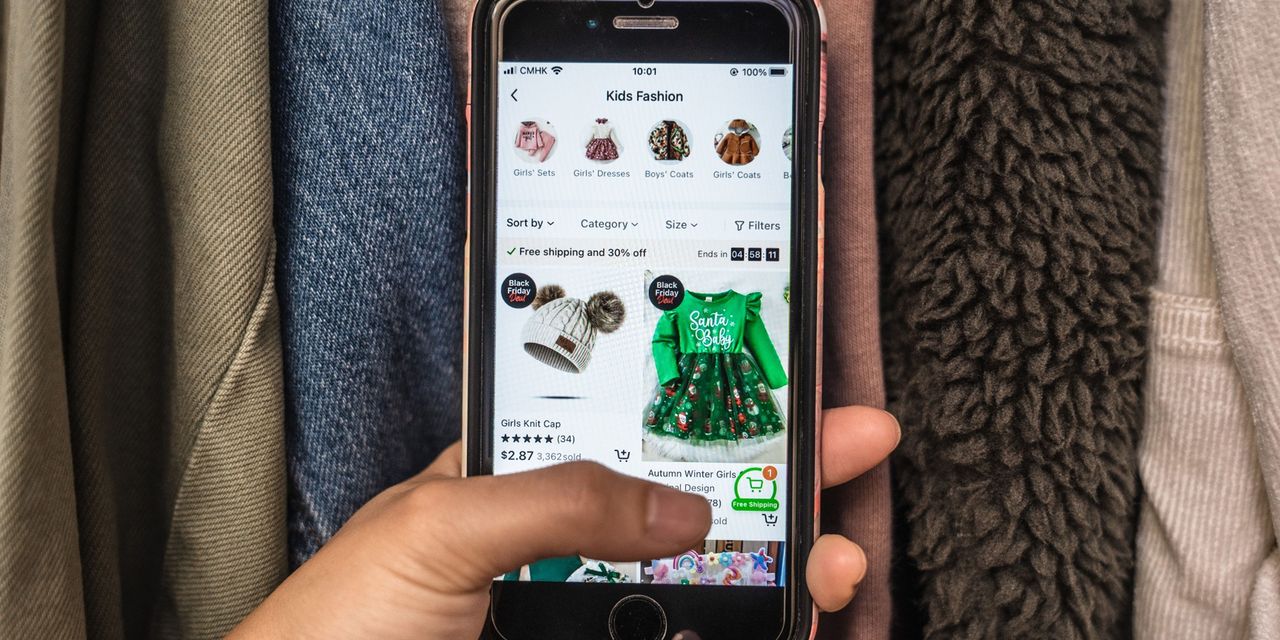Lawmakers are taking aim at another retailer with ties to China. Temu, a popular e-commerce site that sells myriad cheap products, is in the line of fire.
A Congressional report published Thursday accuses Temu of failing to prohibit the sale of goods from the Xinjiang Uyghur Autonomous Region of China, in violation of U.S. law. “American consumers should know that there is an extremely high risk that Temu’s supply chains are contaminated with forced labor,” the report said.
Neither Temu nor
PDD Holdings
(PDD), its parent company, immediately responded to requests for comment. Temu has racked up more than 50 million downloads on the
Apple
and Android app stores since the company was launched in the U.S. in September.
The findings were preliminary results from an investigation by the Select Committee on the Chinese Communist Party into efforts by Shein, Temu,
Nike
(NKE), and
Adidas
‘ (ADDYY) to comply with the Uyghur Forced Labor Prevention Act of 2021. The law effectively bans imports from Xinjiang.
While Temu was founded in Boston, the bulk of its operations lie in China. According to the Congressional report, the company’s app and website facilitate transactions between Americans and over 80,000 suppliers, most of them Chinese.
The products Temu offers often retail for less than $10, and are mailed directly to consumers from Chinese factories and warehouses in small packages. That has allowed Temu to skirt scrutiny from customs officials, according to the report, given that the packages are often valued at less than $800—the threshold for paying duties.
Temu isn’t the first company to be accused of taking advantage of the $800 rule, which is also called the de minimis exception. The fast-fashion company Shein has also been criticized for using the threshold to ship hundreds of thousands of packages to the U.S.
The report estimates that Temu and Shein are responsible for almost 600,000 packages shipped into the U.S. every day under the de minimis rule, totaling about 210 million packages every year not subject to import duties.
That is a problem, lawmakers argue, because it implies that most of the products mailed by the companies won’t be subject to controls that enforce the ban on products made in Xinjiang. Just last week, a bipartisan group of legislators introduced two bills aimed at closing the de minimis loophole.
While Shein has faced frequent criticism over some of its labor practices, the company largely escaped Congress’ wrath this time around. Instead, Temu got the brunt of it.
“Temu didn’t report any compliance or auditing system to independently verify that the tens of thousands of sellers who list on Temu aren’t selling products produced with Uyghur forced labor,” the report said. The company’s “sole measure” was to require its sellers to agree with a code of conduct that states the company has a zero-tolerance policy for use of forced labor, the report said. Temu also relies on a reporting system that would require customers or vendors to call out any instances of forced labor.
Shein has previously told Barron’s that it makes its manufacturers sign a code of conduct, implements yearly internal audits, and uses proprietary technology to trace the origin of its products’ materials.
The committee’s investigation continues. It is likely to be part of a broader effort in Washington to regulate companies with ties to China as tensions with Beijing worsen. The preliminary findings raise “serious questions that warrant—and will receive—additional scrutiny,” the report said.
Write to Sabrina Escobar at [email protected]
Read the full article here





